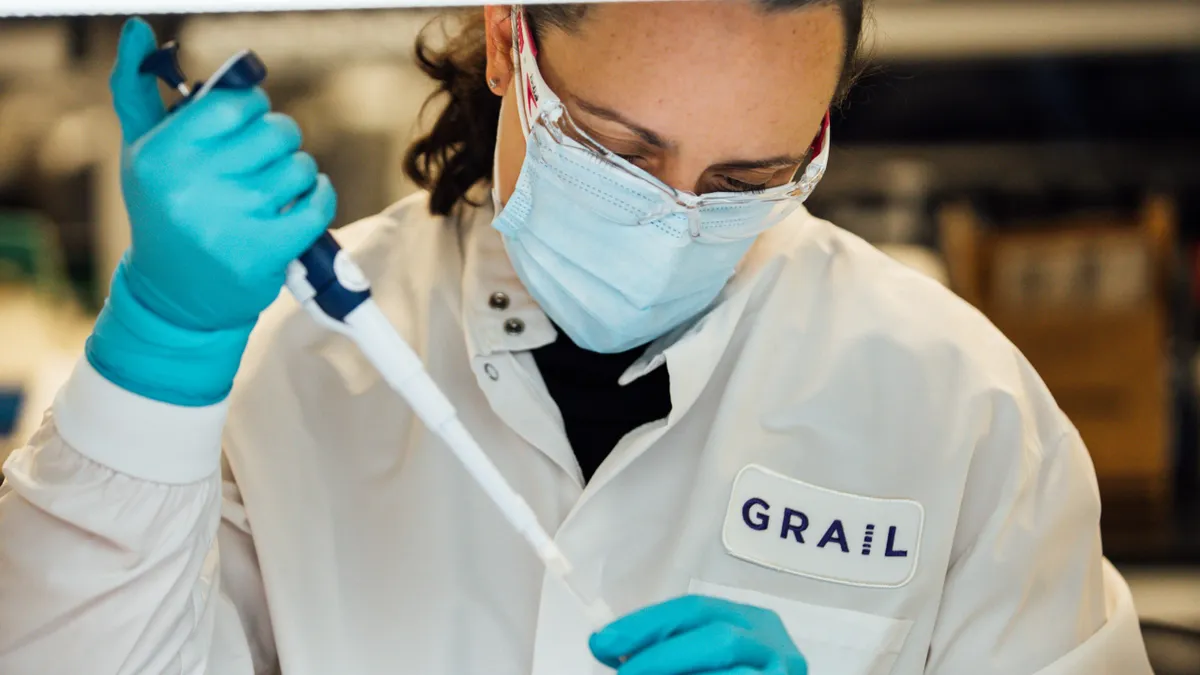Dive Brief:
-
Abbott has received a CE mark for a modified version of its fast-selling MitraClip device that is designed for use in patients with leaky tricuspid valves, per a statement posted Thursday.
-
The company said the device, called TriClip, will enable surgeons to repair tricuspid valves without performing open-heart procedures.
-
The marketing clearance is the second in an expected trio of regulatory okays for Abbott's structural heart unit, which grew 16% on an organic basis last year.
Dive Insight:
Abbott has capitalized on MitraClip’s first-mover advantage to achieve double-digit structural heart growth. But potential rivals including Edwards Lifesciences and Medtronic are seeking to challenge the company for the transcatheter mitral valve repair market.
Tricuspid valve repair offers another potential area of growth. TriClip is designed to repair tricuspid valves like MitraClip repairs mitral valves. If a patient’s tricuspid valve has an imperfect seal, blood can flow backwards in the heart, causing the organ to work overtime and leading to negative outcomes including death.
Surgeons can fix leaky valves in open-heart procedures, but the characteristics of tricuspid patients, who are often older and have multiple comorbidities, makes that a risky option. Abbott wants to give those patients a lower-risk treatment option.
Abbott secured the CE mark after running a study of TriClip in 85 patients. The trial, results from which were published in The Lancet, found the severity of tricuspid regurgitation improved by one or more grades at 30 days in 86% of patients.
By the six-month mark, 6% of participants had experienced a major adverse event, well below the prespecified target of 39%. Five percent of the patients died in the six months after treatment.
Abbott will face competition as it tries to leverage that data to turn TriClip into a successful product. Edwards gained a CE mark for tricuspid valve reconstruction product Cardioband in 2018, followed by a CE mark to sell its Pascal tricuspid valve repair system early in 2019. The two companies are aiming to get a tricuspid device to market in the U.S.
Abbott said its experience with MitraClip can help it emerge as the dominant player in the tricuspid market. “We know how to build this. We did it with mitral, and we're going to go about doing it the same way, building the capability, the clinical evidence,” Robert Ford, then chief operating officer and now chief executive officer at Abbott, told investors on a conference call in January.
Ford and his colleagues are laying the groundwork for TriClip's growth amid other key developments in the structural heart device portfolio this year. Abbott picked up a CE mark for its transcatheter mitral valve replacement device, Tendyne, at the start of the year, and is also targeting U.S. approval of its transcatheter aortic valve replacement product, Portico.











